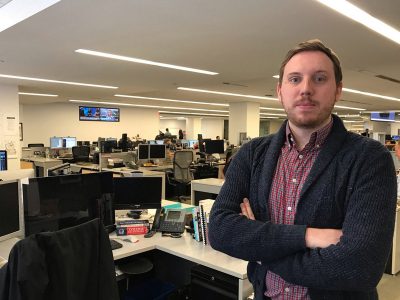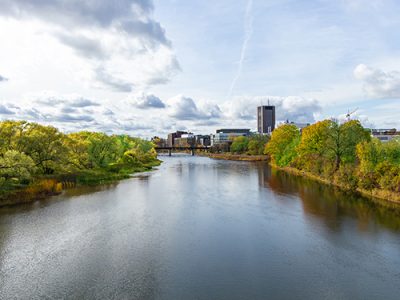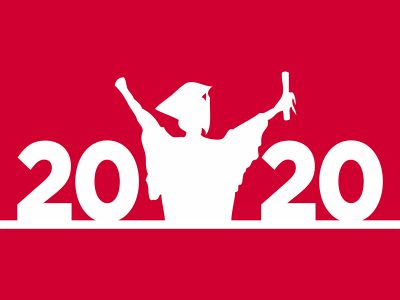By Jordan Richard Schoenherr
Hurricanes, tornadoes and wildfires have tested our resolve as individuals, communities and societies. Along with social crises such as political- and war-induced migration, these events provide stark illustrations of our ability to adapt, help and trust one another through informal social networks and formal social institutions.
Trust in our institutions is declining. While some of this distrust might result from direct experience of failing or faltering social systems, cynics and pundits can promote mistrust for financial and social capital through votes and public opinion.
Trust is often woven into our society like an invisible thread, stitching together disparate individuals and distant communities. Effective societies are grounded in a reliance and dependency on others to provide everything from mobile networks, water and sewer services, electricity, education and justice.
In order to mend it where it is broken and reinforce it where it is fraying, we must examine our social tapestry and ask how we can promote trust.
Trusting neighbours, leaders & institutions
Trust isn’t an all-or-nothing phenomenon. It can develop between peers and leaders as well as towards institutions and their symbols.
We share a common fate with our peers. Their actions matter to us. When we can, we monitor and regulate their behaviour through direct observation and action. When we can’t, we rely on gossip and other indirect means to learn about others and their values. If we think we have fallen short of their standards, we might increase our efforts. If we think we have exceeded their expectations, we might reduce our efforts.
Not all members of a group have equal status. Experts and leaders occupy central, elevated positions in their social networks — even if only on a temporary basis. Ideally, they have knowledge, competencies and social capital at their disposal that can help the group.
Legitimate expertise is hard won; it takes years to develop. Even if we have competency in one area, expertise is inelastic. It can narrow our focus, leading us to fail to see atypical patterns. That means leaders and experts need to be modest in their claims of expertise.
While credit might be claimed by one leader or the next for the functioning of economic and social systems, ultimately our societies are the end product of generations of cultural evolution supported by co-operation and collaboration.
Over time, groups of experts become embedded within our societies. They become our trusted institutions. Symbols like police badges, military insignia, judges’ robes, stethoscopes and lab coats take on a new significance, conveying and conferring this status.
Symbols become important
Even complex scientific instruments and technology can take on a symbolic meaning beyond their practical utility. These symbols can be used to persuade those inside and outside our group. They can also be used to manipulate our trust.
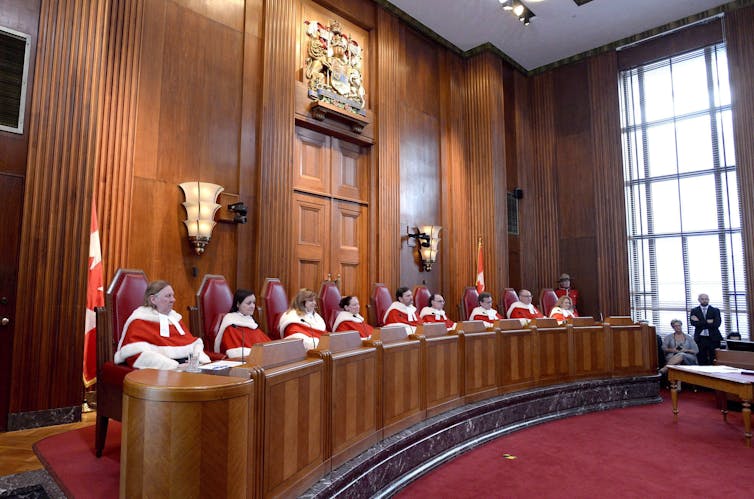
Like everyone, experts rely on their peers to keep them in check through formal standards and professional organizations. Professions like science, the law and medicine are self-reflective. The debunking of many of Dr. Mehmet Oz’s claims, for example, provides a crucial illustration of this internal regulation.
At their best, these mechanisms ensure that a profession retains its credibility and its access to financial and social resources.
The dangers of failures of trust
The recent hurricane in the United States speaks to concerns about the credibility of professions. Distrust in science played an important role in how people responded to the approach of hurricane Florence. Some residents stayed for practical reasons, including the protection of family, pets and property. Others simply discounted the information or placed their faith in a higher power to protect them.
While this could be seen as an unwavering individualism, it also likely represents a lack of trust in their community and in scientific institutions.
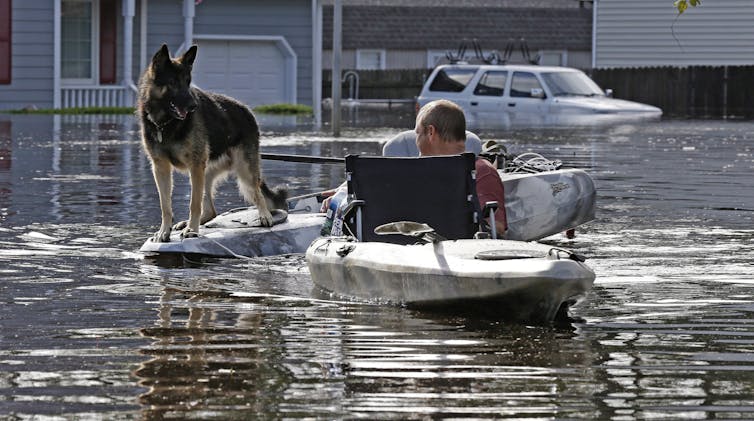
This refusal to defer to the authority of experts and institutions reflects the real cost that breakdowns in social cohesion can have on our lives and our communities. It represents a shift from facts to opinion and rumour.
This isn’t to say institutional flaws should be discounted. While there have been scientific hoaxes, fields like climate science are based on consensus. When choosing to trust others, we must weigh the good and bad. While we cannot ignore misconduct, we must not mistake the actions of a minority for the majority.
Discounting information for temporary reassurance or social gains and supplanting it with bravado and confidence will not make us better decision-makers. We live in the age of data. Only accurate information and successful application will improve our lives and protect us in the future. We need experts and institutions to help us put it to use.
Restructuring our institutions
The vain efforts of China and Rome show us that, despite their symbolism, walls will not keep us safe. They are antiquated solutions to contemporary problems. If we want to avoid a Hobbesian nightmare of all against all, we must regain trust in each other and reverence for our institutions.
We need transparency. Legitimate impediments to rebuilding trust must be identified and acknowledged. Structural inequalities still exist that are associated with race and gender. Although these persistent concerns might be the result of explicit biases, they might also reflect institutional inertia. Rather than attempting to justify them, we must understand these dynamics in order to effectively redress these differences.
Our actions and those of our institutions must be open to question. Questions are a healthy and necessary response to a world filled with uncertainty.
The best decisions are not made by conforming to what we believe are the opinions of our group. We must learn the delicate art of civil discourse and practise authentic dissent.
If we do not question ourselves first, others gladly will.
From the inside, this might appear wasteful and inefficient. From the outside, it might have the appearance of widespread dissent and indecision. That’s democracy.
But when viewed in terms of historical time lines, questioning our own beliefs and those of our group can help us make better decisions. Forecasting the future must be done in terms of decades and centuries, not just election cycles. Whenever possible, we must reason by analogy from the past, compare across cultures and buffer ourselves against the inevitability of unknowns.
Casting a vote for a leader is insufficient. We must hold our leaders to account, regardless of whether we voted for them or against them. We must get involved in our communities, because we are inseparable from them.
This article is republished from The Conversation under a Creative Commons license. Carleton University is a member of this unique digital journalism platform that launched in June 2017 to boost visibility of Canada’s academic faculty and researchers. Interested in writing a piece? Please contact Steven Reid or sign up to become an author.
All photos provided by The Conversation from various sources.
![]()
Monday, October 8, 2018 in The Conversation
Share: Twitter, Facebook
